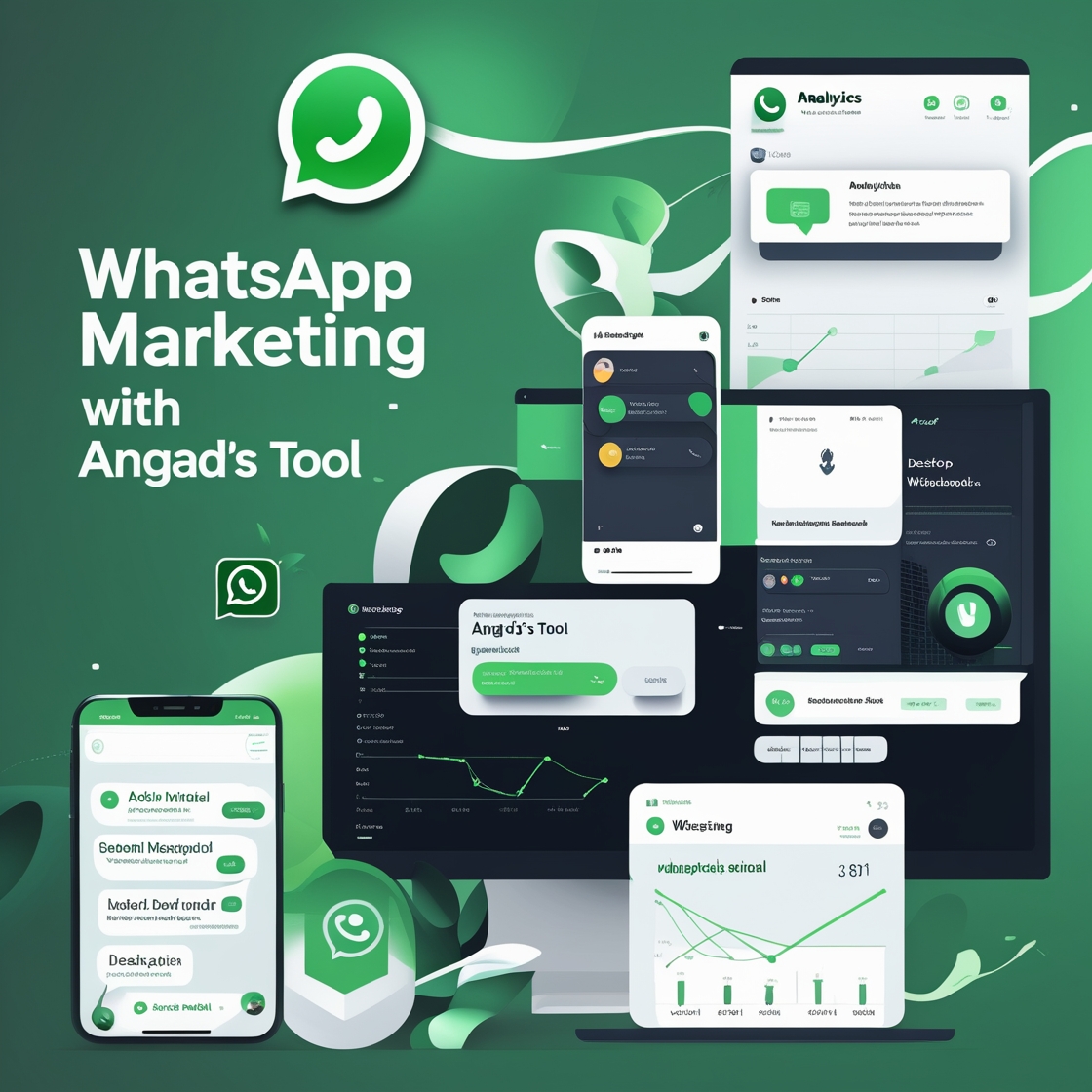
With over 2 billion active users globally, WhatsApp continues to dominate as one of the most popular messaging platforms. As businesses seek direct and personalized ways to engage their audiences, WhatsApp marketing has emerged as a game-changer. By 2025, advancements in WhatsApp Business tools and API integrations are redefining how brands connect with their customers. This blog explores effective strategies and trends for using WhatsApp to reach millions and drive meaningful engagement. The Evolution of WhatsApp Marketing Since its launch, WhatsApp has transitioned from a simple messaging app to a robust platform for businesses. The introduction of the WhatsApp Business app and the WhatsApp Business API has opened new opportunities for brands to engage with their audiences. Key Milestones: 2018: Launch of the WhatsApp Business app for small businesses. 2020: Rollout of the WhatsApp Business API for larger enterprises. 2023: Enhanced features like quick replies, catalogs, and payment integrations. By 2025, these tools have become even more sophisticated, enabling businesses to create personalized experiences at scale. Why WhatsApp Marketing Works 1. Massive Reach With billions of users spanning diverse demographics, WhatsApp allows businesses to connect with audiences across the globe. 2. High Engagement Rates Messages on WhatsApp boast an open rate of over 98%, significantly higher than email marketing. 3. Direct and Personalized Communication WhatsApp provides a direct line to customers, fostering trust and building stronger relationships. Top Strategies for Effective WhatsApp Marketing in 2025 1. Leverage WhatsApp Broadcasts for Mass Outreach Broadcast lists allow businesses to send messages to multiple users simultaneously without creating a group. This is ideal for promoting offers, sharing updates, and engaging with large audiences. Tips for Success: Personalize messages using customer names. Segment your broadcast lists by interests or purchase history. Include a clear call-to-action (CTA) in every message.

The WhatsApp Business API empowers businesses to automate communications and integrate WhatsApp into their CRM systems. Benefits: Chatbots: Handle customer inquiries 24/7. Automated Messages: Send order confirmations, shipping updates, and reminders. Seamless Integrations: Sync WhatsApp with tools like HubSpot, Salesforce, or Shopify. How to Get Started: Partner with a WhatsApp Business API provider. Define automated workflows for common customer interactions. Regularly update chatbot responses to reflect new products or policies. 3. Create Interactive Campaigns with WhatsApp Catalogs WhatsApp catalogs allow businesses to showcase their products or services directly within the app. By 2025, these catalogs have become more interactive, enabling customers to browse, select, and even purchase items seamlessly. How to Use Catalogs Effectively: Highlight key product features with high-quality images. Organize items into categories for easy navigation. Include pricing, descriptions, and links to purchase. 4. Focus on Conversational Commerce Conversational commerce combines the convenience of messaging apps with the power of e-commerce. WhatsApp enables businesses to guide customers through the sales funnel using personalized conversations. Examples: Answering product inquiries in real time. Offering personalized product recommendations. Providing post-purchase support and feedback collection. Tools to Enhance Conversational Commerce: AI-powered chatbots for instant responses. Integration with payment gateways for seamless transactions. Analytics tools to monitor and optimize customer interactions. 5. Engage with Rich Media Content Rich media, such as images, videos, and audio messages, enhances the customer experience and boosts engagement. Content Ideas: Share product demo videos or tutorials. Send personalized voice notes for a human touch. Use GIFs or stickers to make messages more engaging. Best Practices: Keep file sizes small to ensure quick loading. Use visually appealing and high-quality media. Align media content with your brand’s voice and style.
To ensure your WhatsApp marketing efforts are effective, it’s crucial to track key performance metrics. Metrics to Monitor: Open Rates: Measure how many recipients read your messages. Click-Through Rates (CTR): Track the number of users clicking on your links. Conversion Rates: Analyze how many recipients take the desired action. Customer Response Time: Monitor how quickly your team responds to inquiries. Tools for Analytics: Use WhatsApp Business API analytics dashboards. Integrate WhatsApp with Google Analytics for advanced tracking. Employ third-party tools like Twilio or MessageBird for detailed insights. Staying Compliant with WhatsApp Policies To maintain customer trust and avoid account restrictions, it’s essential to adhere to WhatsApp’s policies. Best Practices: Obtain user consent before sending promotional messages. Avoid spamming users with frequent or irrelevant messages. Provide an opt-out option in all communications. Conclusion WhatsApp marketing in 2025 offers unparalleled opportunities for businesses to connect with their audiences effectively. By leveraging tools like broadcasts, catalogs, and conversational commerce, brands can create personalized and engaging experiences that drive results. With its massive reach, high engagement rates, and innovative features, WhatsApp is a must-have channel for any modern marketing strategy. Start implementing these strategies today to stay ahead of the competition and make the most of this powerful platform.


Effective SEO strategies not only elevate a website's visibility but also drive
targeted traffic, enhance user experience,

By optimizing content, leveraging relevant keywords, and adhering to best practices, businesses can secure prominent position (SEO)
ⓒ Copyright angadyadav.in . All rights reserved
